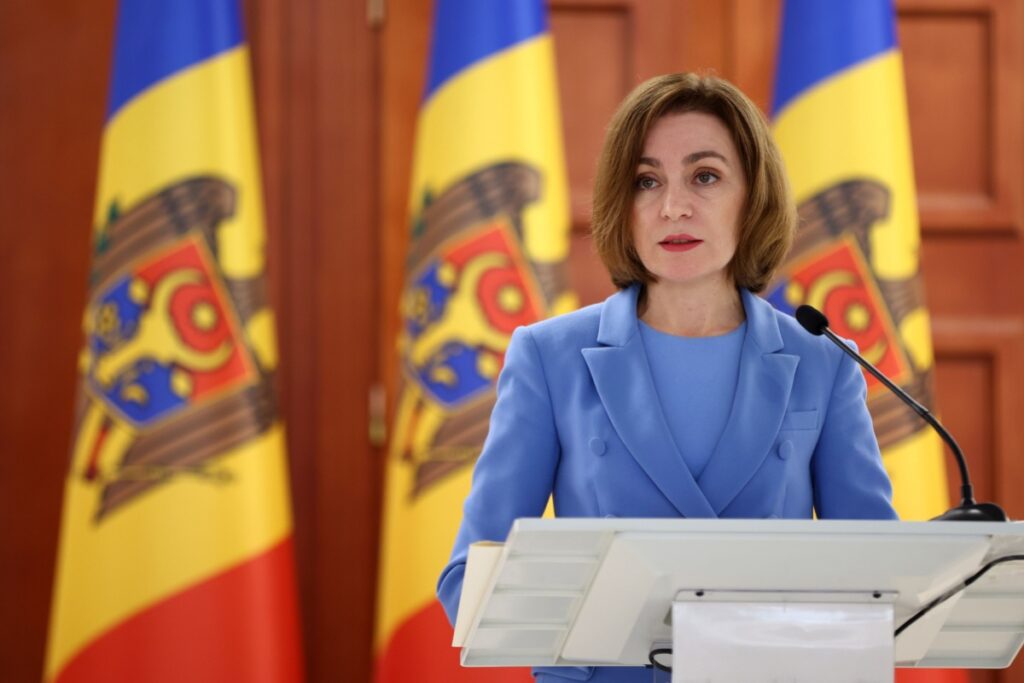Moldovans delivered a decisive win to the governing, pro-Western Party of Action and Solidarity (PAS), granting it a clear parliamentary majority after Sunday’s vote. With just over 50% of ballots and about 55 of 101 seats, PAS secured the ability to govern without a coalition, a result framed domestically as a choice between deeper European Union alignment and a return to Moscow’s orbit.
Strong Mandate For Europe-Focused Leadership
Turnout reached about 52%, including a large diaspora vote that favored PAS, according to preliminary figures. European leaders quickly welcomed the outcome as a strong endorsement of Moldova’s westward course. European Commission President Ursula von der Leyen praised voters for reaffirming “Europe, democracy, freedom,” while Kyiv also cheered the result amid concerns about Russian destabilization in the region. President Maia Sandu and PAS leader Igor Grosu cast the win as a mandate to press ahead with anti-corruption efforts, modernization, and EU integration.
Interference Claims Shadow The Vote
The campaign and election day unfolded against a backdrop of alleged Russian interference, including disinformation, cyber incidents and pressure on voters abroad. Authorities also reported sporadic security threats at polling venues outside Moldova. Election officials had earlier barred two pro-Russian parties from competing, a step they said was necessary under the law amid suspected foreign influence operations. Opposition figures, including former president Igor Dodon, criticized the process and signaled challenges, but no credible evidence emerged to invalidate the overall result.
Despite these tensions, international reporting described a largely orderly count. Analysts noted that the diaspora vote, long a decisive factor in Moldova’s close contests, again strengthened pro-EU forces, while the main pro-Russian bloc trailed far behind PAS on the national tally. Authorities emphasized that safeguarding information space and electoral logistics would remain a priority as the country navigates its next phase.
Accession Hopes Meet Real-World Constraints
PAS’s majority clears a path to accelerate the legislative agenda tied to EU candidacy, secured in 2022, and to sustain reforms on the judiciary, state administration, and anti-corruption. European officials reiterated support, but experts cautioned that accession timelines hinge on concrete progress and on political dynamics within the EU itself. Some member-state objections and broader enlargement debates could complicate target dates, even as Brussels has mobilized sizable financial and technical backing for Chisinau.
For the government in Chișinău, the immediate task will be converting political momentum into legal and institutional change at home. PAS leaders have pledged to keep Prime Minister Dorin Recean’s reform program on track to maintain macroeconomic stability and investor confidence while aligning standards with the single market. The administration argues that forward motion on the EU track is the surest way to build resilience against external shocks.
Security, Energy, And Transnistria Still Loom Large
Even with a comfortable majority, Moldova faces a difficult security environment and a fragile energy landscape. The war in neighboring Ukraine continues to strain logistics and trade, while periodic information-warfare campaigns test institutions and public trust. Energy volatility has been acute since late 2024–2025, when gas flows to the separatist region of Transnistria were disrupted, forcing costly alternatives and exposing long-standing vulnerabilities in electricity supply. The government has sought diversified imports and EU-backed connectivity to reduce exposure to Russian energy leverage.
PAS officials say the electoral mandate strengthens their hand to deepen cooperation with Romania and EU partners on cross-border infrastructure, grid stability, and rule-of-law reforms. Yet, managing relations with Transnistria, countering malign influence, and cushioning households from price shocks will remain central tests. As vote tallies are finalized, PAS’s projected ~55 seats should give it the legislative bandwidth to move quickly—while the opposition prepares to contest elements of the agenda both in parliament and in the public square.


